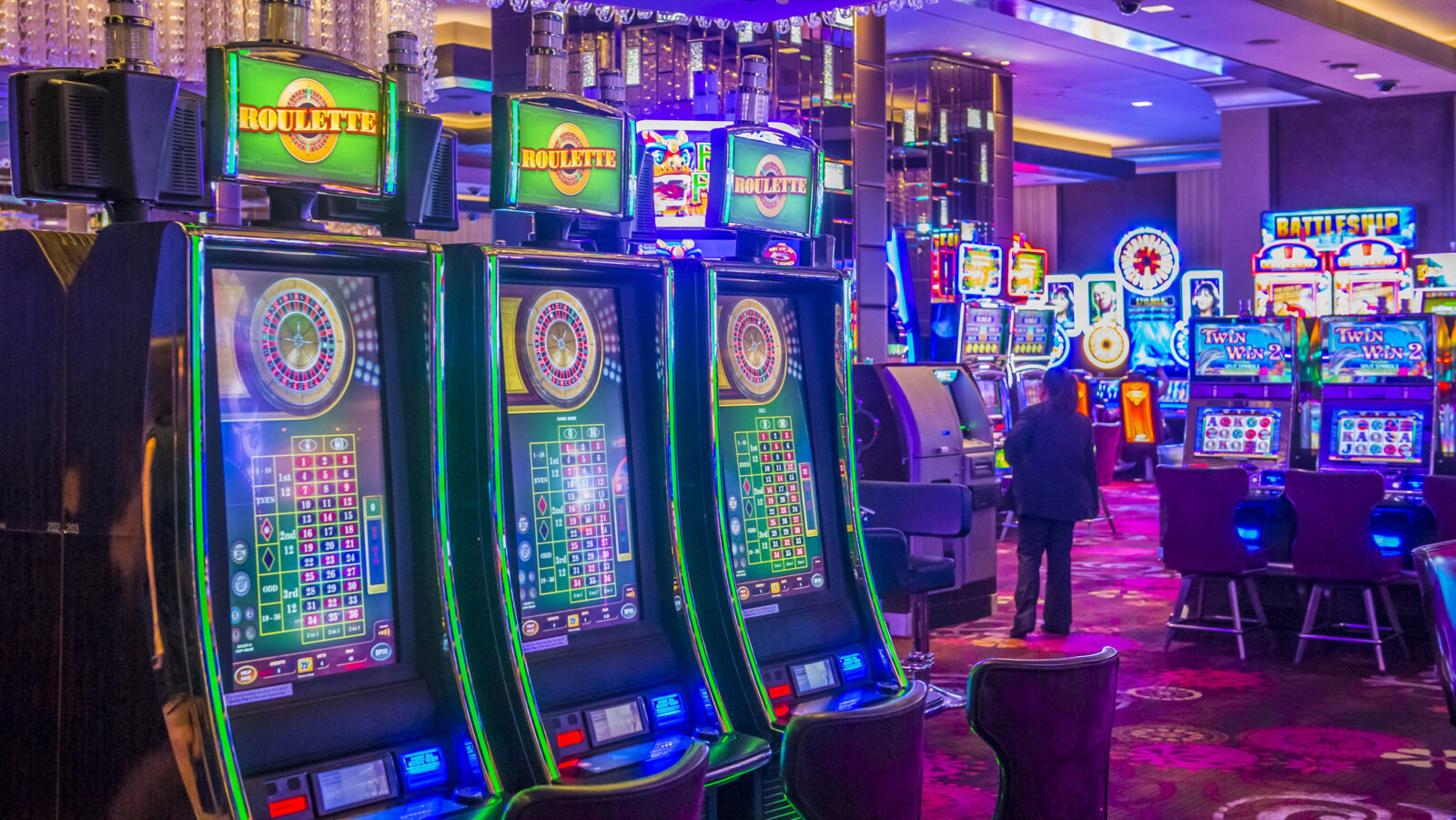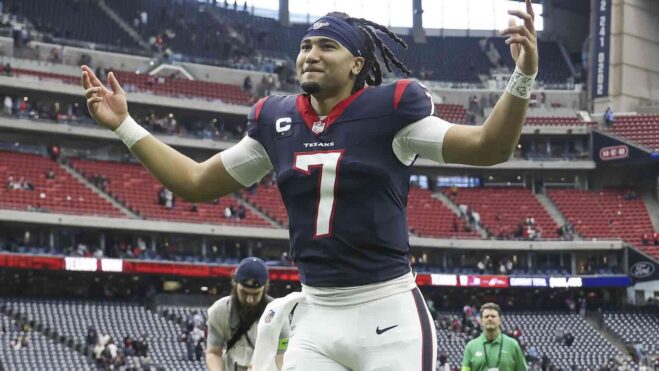The Ruddock Report: What Went Wrong For Online Casino Legalization In 2024?
Our monthly look at the online gambling landscape includes the current legal and regulatory scene, prospective states, and trends to watch.
5 min

Our monthly look at the online gambling landscape includes the current legal and regulatory scene, prospective online casino and online poker states, and significant trends to watch.
Last-ditch efforts to legalize online casino gambling in Maryland and Maine came up short, and barring a legislative miracle, the number of legal online casino and/or poker states will remain at eight into 2025.
But it’s not all doom and gloom. Some new candidates have emerged as stakeholders look to bypass the legislative gridlock with more creative ideas to bring online gambling to their states.
LEGAL ONLINE GAMBLING ONLINE POKER-ONLY
What went wrong in 2024, part 1
In three words: election year politics. We are in the midst of a presidential election cycle, and if history is any guide, significant legislation that requires both sides of the aisle to work together is not in the cards in such a year.
This extends beyond the state legislatures, too. Elected officials are also unwilling to give a governor from an opposing party a win.
What went wrong in 2024, part 2
From Sheldon Adelson to problem gambling advocates to skeptical stakeholders, online gambling legalization has never lacked opponents. That said, to borrow from Tom Green in Road Trip, the latest group to voice opposition to online gambling could be its “most challenging challenge ever”: labor unions.
As I wrote in last month’s column, “A new antagonist in the cannibalization debate further hinders online gambling: organized labor. While casinos have warmed to online gambling, labor’s opposition has grown and is now a major roadblock in New York and Maryland.”
Unions wield tremendous political clout. Looking at the top online casino candidate states (Maryland, Indiana, New York, Maine, Illinois, and New Hampshire), the percentage of union jobs ranges from 8% in Indiana to over 20% in New York. That’s a lot of voters.
Couple that with the opposition of small businesses in states with a significant VGT or gray machine presence, and things look even dicier. A scheduled hearing to discuss online gambling in Illinois was canceled after the entire witness list, primarily small business owners, planned to speak against legalization.
What went wrong in 2024, part 3
Sports betting’s troubles are not a self-contained problem. Online casinos and poker will be collateral damage as they share the “online” descriptor with sports betting, all of which fall under the mobile gambling umbrella.
Looking ahead to 2025 and beyond
The chart below divides into groups the states with online casino legalization hopes for 2025-2030:
| 2025-2026 | 2027-2028 | 2029-2030 | Dark Horses |
| New Hampshire | Indiana | Colorado | Arkansas |
| Wyoming | Illinois | Ohio | Florida |
| Maryland | New York | Kentucky | Oklahoma |
| Maine | North Carolina | Massachusetts | Minnesota |
| Iowa | Louisiana | Virginia | Wisconsin |
You can find a brief rundown for many of the above candidate states in last month’s “Ruddock Report.”
Candidate Spotlight: New Hampshire
In 2023, New Hampshire flirted with online casino legalization. The Senate passed a bill that eventually died in the House. There are two somewhat connected reasons for the bill’s failure.
First, fearing cannibalization, the state’s charity casinos opposed the legislation. Second, New Hampshire is trying to close the book on a gambling-related scandal centered around the owner of one of those casinos, whose wife happens to chair the House Committee where the legislation ran into a roadblock.
Andy Sanborn, the owner of the Concord Casino and a former state legislator, has been accused of misappropriating COVID relief funds, which led to the revocation of his gaming license. Sanborn is also required to sell his stake in the casino.
In what I’m sure is just a coincidence, Sanborn’s wife, Laurie Sanborn, is the current chair of the House Ways and Means Committee, where the 2023 online casino bill met its demise. Laurie Sanborn also resigned as the chair of New Hampshire’s “Commission to Study the Effect of Recent Changes Made to the Charitable Gaming Laws, Including the Newly Authorized Historical Horse Races.” (New Hampshire is not into the whole brevity thing.)
The good news is that once Andy Sanborn sells his ownership, the state can put this fiasco behind it and, hopefully, renew its online casino legalization efforts.
New candidates emerge
Hello, Arkansas: The Razorback State covertly legalized online poker when it legalized four casinos and sports betting in a statewide referendum in 2018. That has flown entirely under the radar because regulators have never officially authorized online poker. Now, one of the state’s casinos is pushing regulators to amend the description to include casino games.
As first reported by Gambling.com’s Larry Henry, “On March 13, Carlton Saffa, CMO at Saracen Casino Resort in Pine Bluff, wrote to Arkansas Racing Commission Chairman Alex Lieblong asking for a change in the rules to allow internet casino gambling.”
The pathway is an amendment to regulatory rule 006-06-19 Ark. Code R. § 5 to include internet casino games in addition to online poker.
“A solution exists by amending ARC Rule 5, which already authorizes online poker, to include other types of table games and slots,” Saffa told GDC.
The hub-and-spoke model: If the Supreme Court sides with the Seminole Tribe and the state of Florida in the West Flagler case, it could ignite an online casino boom in Florida and many other tribal gaming states. The case has enormous ramifications for tribes and the entire gambling industry following the new rules issued by the Department of Interior that affirmed the hub-and-spoke model central to the West Flagler case (more on this in the “Trends to watch” header below).
Speaking to Play USA’s Matthew Kredell, Hard Rock International Chairman and CEO Jim Allen said an affirmative Supreme Court ruling in West Flagler vs. DOI would not only validate mobile sports betting but also open the door to renegotiating the Seminole Tribe’s compact with Florida to include online casino games.
“If the case was resolved in our favor, we would then have to reinitiate conversations with the governor’s office, the House, and the Senate,” Allen said.
Trends to Watch
Trend no. 1: Scalpels vs. chainsaws
The slow adoption of legal online casino gambling has created two distinct classes of gambling operators. The first is willing to play the waiting game and spend whatever it takes, for seemingly as long as it takes, until the U.S. becomes an omnichannel online gambling market. The second group (think BetRivers or PointsBet) doesn’t have the same war chest to draw from and is taking a more measured approach to existing and future markets.
Many have left the market, and others have reduced their presence, choosing to focus on only sports and casino states.
Why is that important? As we’ve seen during discussions in Mississippi, Ohio, and Maryland, several not-online casino operators are not on board with online expansion.
Trend no. 2: Tribes
Circling back to Jim Allen’s comments on using the hub-and-spoke model to bring online casino gambling to Florida, the Department of the Interior’s changes to land-in-trust rules have flown under the radar, but they could be the most consequential change to tribal gaming since the passage of the Indian Gaming Regulatory Act.
However, as legal challenges are expected, it will likely be many years before tribes can potentially capitalize on the new rules. If the rules go unchallenged or tribes prevail in court, you can add states like Oklahoma, Arizona, New Mexico, Minnesota, Wisconsin, and even California to the candidate list. That explains why several tribal gaming states are now included in the chart above as dark horse candidates.




